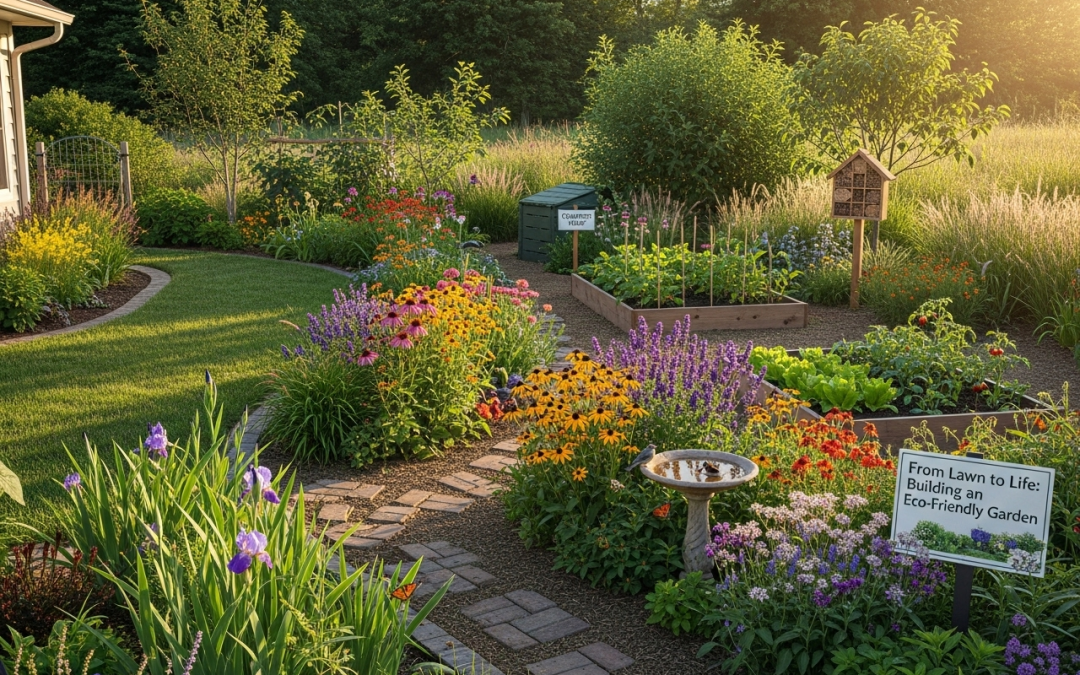In the contemporary world, where the importance of environmental stewardship is greater than ever, our gardens offer a distinctive chance to effect a positive change. Sustainable gardening encompasses more than just cultivating plants for aesthetic purposes — it involves establishing a self-sustaining ecosystem that collaborates with nature instead of opposing it. By implementing eco-friendly practices, you can convert your backyard into a flourishing, resilient, and wildlife-friendly haven that conserves resources and promotes biodiversity.
Water conservation is a fundamental aspect of sustainable gardening. Conventional lawns and gardens often require significant water usage, yet there are more efficient methods to maintain healthy and vibrant plants.Xeriscaping, which incorporates drought-resistant plants like succulents, lavender, sage, and ornamental grasses, enables the creation of beautiful landscapes that need minimal watering once they are established. Substituting sprinklers with drip irrigation guarantees that water is supplied directly to the roots of the plants, thereby decreasing evaporation and runoff. Additionally, installing rain barrels to capture water from your roof further reduces dependence on municipal water sources while also decreasing water expenses.
While sustainable gardening is fulfilling, it frequently demands patience and adaptability. Variations in weather, changing seasons, and erratic rainfall can all influence the growth of your garden. Establishing healthy soil through natural amendments such as compost or leaf mold lays a robust foundation that enables plants to endure these variations. Promoting biodiversity — from earthworms in the soil to birds in the trees — also enhances your garden’s resilience, as each species contributes to maintaining balance. For those managing smaller spaces, innovative solutions like edible landscaping, vertical green walls, or incorporating herbs into flower beds can optimize limited areas while ensuring the garden remains productive and environmentally friendly.
The true worth of sustainable gardening is assessed not solely by harvests or blooms, but by the enduring impact it creates. A thoughtfully designed, eco-conscious garden can help regulate temperatures in urban settings, enhance air quality, and establish green spaces that unite communities. On a personal level, caring for a garden fosters mindfulness and serves as a daily reminder of the interconnectedness between humanity and nature. Every decision you make — from planting a pollinator-friendly shrub to minimizing chemical usage — represents a small yet significant step toward a healthier planet, demonstrating that meaningful environmental change can begin right outside your door.
Sustainable gardening transcends being a mere trend — it embodies a profound commitment to coexisting harmoniously with the environment. Your garden transforms into a living testament to your dedication to the planet, providing beauty, productivity, and a legacy of biodiversity for future generations. By collaborating with nature, you cultivate a space that benefits both yourself and the surrounding world, illustrating that even minor adjustments in our own backyards can yield a powerful, lasting influence.

